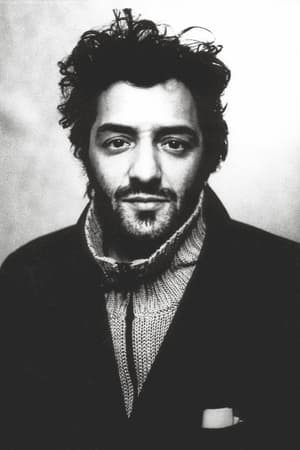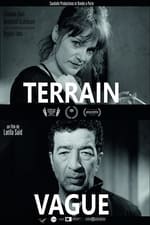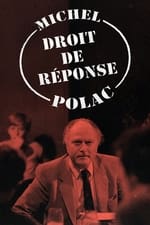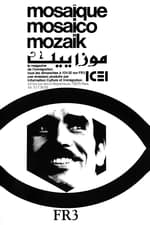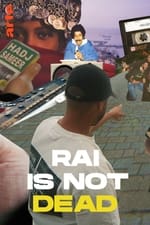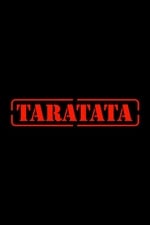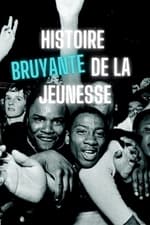Personal Info
Known For Acting
Known Credits 13
Gender Male
Birthday September 18, 1958
Day of Death September 12, 2018 (59 years old)
Place of Birth Sig, Algeria
Also Known As
- -
Content Score
100
Yes! Looking good!
Login to report an issue
Biography
Rachid Taha (Arabic: رشيد طه, Rashīd Ṭāhā; 18 September 1958 – 12 September 2018) was an Algerian singer and activist based in France described as "sonically adventurous". His music was influenced by many different styles including rock, electronic, punk and raï. Taha was born on 18 September 1958 in Sig, Mascara Province, Algeria, although a second source suggests he was born in the Algerian seacoast city of Oran. This town was the "birthplace of raï" music, and 1958 was a key year in the Algerian struggle for independence against French authority. He began listening to Algerian music in the 1960s, including street-style music called chaabi. Additionally, music from the Maghreb region was part of his upbringing.
He moved with his parents to France when he was ten years old, settling in an immigrant community around the French city of Lyon in 1968. His father was a textile factory worker, with long hours and low pay, such that his life was compared to that of a "modern slave", according to one account. Aged 17, Taha worked during the day at a central heating plant, described as a "menial job", and hated this work, but at night worked as a club DJ playing Arabic music, rap, salsa, funk and "anything else that took his fancy."
In the late 1970s, Taha founded the nightclub called The Rejects or, in French, Les Refoulés, where he would spin mashups of Arabic pop classics over Led Zeppelin, Bo Diddley and Kraftwerk backbeats.
In the 1980s, Algeria's indigenous pop music known as raï began to achieve international attention. Originally raï music was based on "city slickers adapting music from the sticks" and was described as ribald, but it became more of a medium for political protest when young people in the 1960s and 1970s used it to "express their anger and desires." Taha suggested that Algerian musical styles and rock are "closely linked". Taha was influenced by the Moroccan chaâbi band Nass El Ghiwane which has been described as "Morocco's answer to the Beatles or the Stones."
In 1981, while living in Lyon, Taha met Mohammed and Mokhtar Amini and the three of them, along with Djamel Dif and Eric Vaquer, would soon form a band. In 1982, Taha was the lead vocalist for the Arab-language rock group which they named Carte de Sejour, meaning Green Card or Residence Permit depending on the translation. He sang in both French and Arabic, but usually in Arabic. Taha was inspired by the group The Clash: "The Clash were militant and hedonistic in equal measure ... And that was exciting to me. You could be a rebel and be in the biggest rock'n' roll band in the world! It was also clear that they loved music. Joe Strummer had nothing to do with that terrible punk cynicism. By the time of Mogador '81 they weren't just a rock'n'roll band, they were doing hip-hop, reggae, ska, country and western, disco, but making it sound their own. I think that's what gave French musicians the confidence to do the same with whatever music they were into. In some ways, they introduced us to the world." – Rachid Taha, in The Guardian, 2007. ...
Source: Article "Rachid Taha" from Wikipedia in English, licensed under CC-BY-SA 3.0.
Rachid Taha (Arabic: رشيد طه, Rashīd Ṭāhā; 18 September 1958 – 12 September 2018) was an Algerian singer and activist based in France described as "sonically adventurous". His music was influenced by many different styles including rock, electronic, punk and raï. Taha was born on 18 September 1958 in Sig, Mascara Province, Algeria, although a second source suggests he was born in the Algerian seacoast city of Oran. This town was the "birthplace of raï" music, and 1958 was a key year in the Algerian struggle for independence against French authority. He began listening to Algerian music in the 1960s, including street-style music called chaabi. Additionally, music from the Maghreb region was part of his upbringing.
He moved with his parents to France when he was ten years old, settling in an immigrant community around the French city of Lyon in 1968. His father was a textile factory worker, with long hours and low pay, such that his life was compared to that of a "modern slave", according to one account. Aged 17, Taha worked during the day at a central heating plant, described as a "menial job", and hated this work, but at night worked as a club DJ playing Arabic music, rap, salsa, funk and "anything else that took his fancy."
In the late 1970s, Taha founded the nightclub called The Rejects or, in French, Les Refoulés, where he would spin mashups of Arabic pop classics over Led Zeppelin, Bo Diddley and Kraftwerk backbeats.
In the 1980s, Algeria's indigenous pop music known as raï began to achieve international attention. Originally raï music was based on "city slickers adapting music from the sticks" and was described as ribald, but it became more of a medium for political protest when young people in the 1960s and 1970s used it to "express their anger and desires." Taha suggested that Algerian musical styles and rock are "closely linked". Taha was influenced by the Moroccan chaâbi band Nass El Ghiwane which has been described as "Morocco's answer to the Beatles or the Stones."
In 1981, while living in Lyon, Taha met Mohammed and Mokhtar Amini and the three of them, along with Djamel Dif and Eric Vaquer, would soon form a band. In 1982, Taha was the lead vocalist for the Arab-language rock group which they named Carte de Sejour, meaning Green Card or Residence Permit depending on the translation. He sang in both French and Arabic, but usually in Arabic. Taha was inspired by the group The Clash: "The Clash were militant and hedonistic in equal measure ... And that was exciting to me. You could be a rebel and be in the biggest rock'n' roll band in the world! It was also clear that they loved music. Joe Strummer had nothing to do with that terrible punk cynicism. By the time of Mogador '81 they weren't just a rock'n'roll band, they were doing hip-hop, reggae, ska, country and western, disco, but making it sound their own. I think that's what gave French musicians the confidence to do the same with whatever music they were into. In some ways, they introduced us to the world." – Rachid Taha, in The Guardian, 2007. ...
Source: Article "Rachid Taha" from Wikipedia in English, licensed under CC-BY-SA 3.0.
Acting
|
||||||
|
||||||
|
||||||
|
||||||
|
||||||
|
||||||
|
||||||
|
||||||
|
Sound
|
|||
|
|||
|
|||
|
